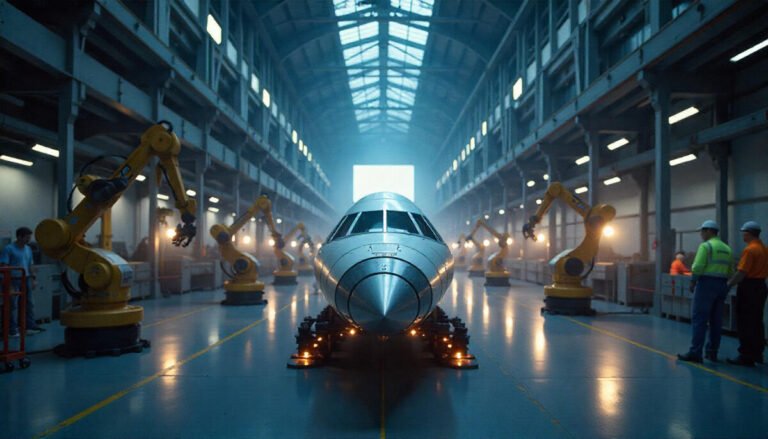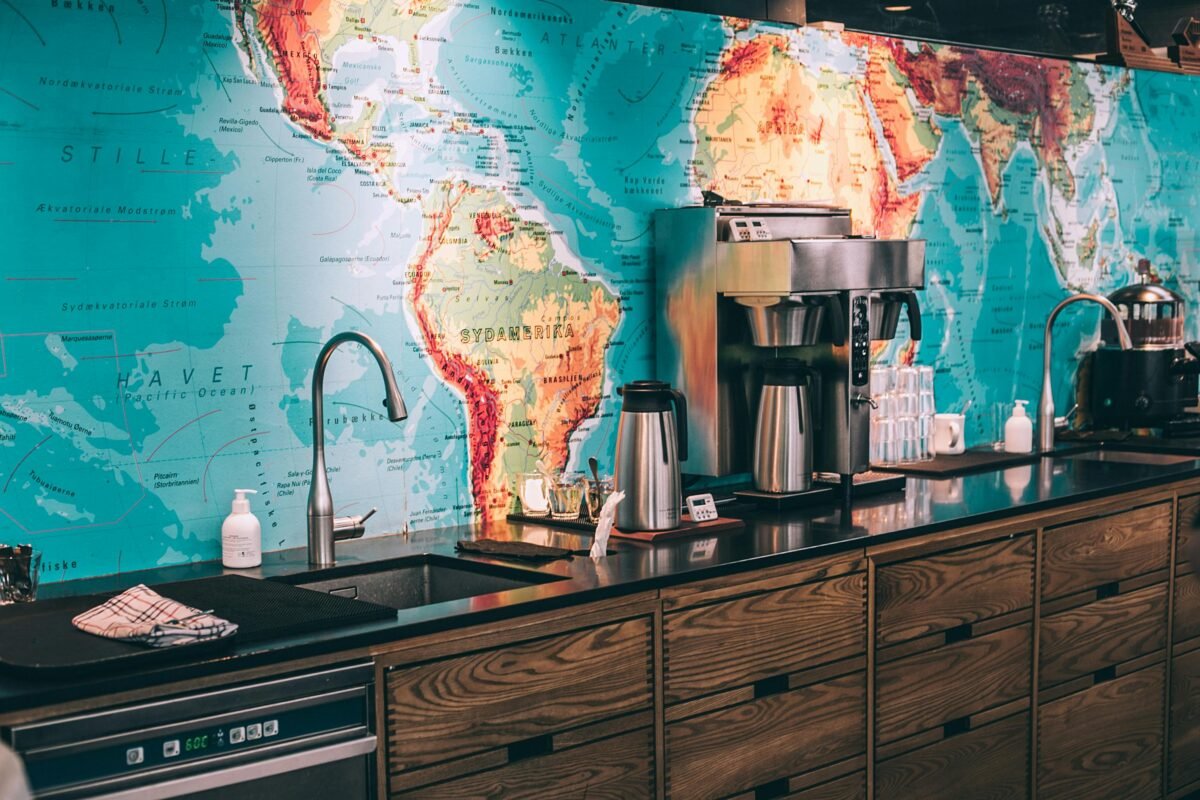The United States has always been the heart of global tech innovation. From Silicon Valley to emerging hubs like Austin and Miami, startups are solving problems with bold ideas and cutting-edge technology. In 2026, several U.S. startups are gaining serious traction — not just with investors, but also with customers and industries hungry for change. Below are some of the most promising tech startups in the USA in 2025, what they’re building, and why they matter for the future.
1. OpenAI – Redefining Artificial Intelligence

Industry: Artificial Intelligence, Generative AI
OpenAI remains one of the most influential tech startups in the United States, even as it matures into a global leader in AI. Founded in 2015, the company’s mission has always been to ensure that artificial intelligence benefits humanity. In 2026, OpenAI continues to set the standard for what AI can do, from powering conversational tools to building advanced models that reshape industries.
What sets OpenAI apart is its ability to merge cutting-edge research with practical applications. Products like ChatGPT and the OpenAI API are being adopted by millions of businesses, students, and developers. Companies use these tools to improve customer service, automate repetitive tasks, and even generate creative content.
At the same time, OpenAI is investing heavily in AI safety and ethics. As artificial intelligence becomes more powerful, ensuring responsible use is just as important as innovation itself. OpenAI actively collaborates with researchers, policymakers, and the tech community to address concerns around bias, misinformation, and misuse of AI systems.
Another reason OpenAI continues to lead is its ability to attract partnerships with major tech players. Microsoft, for example, has integrated OpenAI’s models into its products like Copilot and Azure AI Services, making AI tools more accessible to businesses worldwide.
For entrepreneurs and developers, OpenAI represents a gateway into the AI economy. Its ecosystem allows startups to build new products faster, experiment with creative ideas, and bring innovative solutions to market without needing to build AI models from scratch.
Learn more directly from OpenAI’s official website.
2. Anthropic – Building Safer AI Systems

Industry: Artificial Intelligence, Responsible Tech
While many AI companies focus on speed and scale, Anthropic has carved out a distinct niche by emphasizing safety, transparency, and alignment in artificial intelligence. Founded in 2021 by former OpenAI researchers, Anthropic is now one of the most closely watched AI startups in the United States.
Its flagship product, Claude, is an advanced AI assistant designed to be helpful, honest, and harmless. Unlike many AI models that are trained primarily for performance, Claude was built with constitutional AI principles — meaning it follows a set of human-centered guidelines designed to keep its outputs safe, consistent, and ethical.
This approach has made Anthropic especially attractive to enterprises and institutions that want the benefits of AI without exposing themselves to high compliance risks or reputational harm. In 2025, more companies in industries like finance, law, healthcare, and education are adopting Claude for sensitive tasks where reliability matters just as much as creativity.
Anthropic has also secured significant backing from major players like Amazon and Google Cloud, which highlights just how important safety-driven AI has become in the tech landscape. Their growing partnerships suggest that Anthropic’s influence will only expand as businesses demand trustworthy AI systems.
What makes Anthropic unique is not just its product, but its philosophy: AI should be powerful enough to be useful, but constrained enough to remain aligned with human values. In an era where AI capabilities are accelerating rapidly, that balance could prove critical.
Explore more about their mission and technology on Anthropic’s official website.
3. Anduril Industries – Next-Gen Defense Tech

Industry: Defense, Robotics, Artificial Intelligence
Founded in 2017 by Palmer Luckey, the creator of Oculus VR, Anduril Industries has rapidly become one of the most disruptive startups in the U.S. defense sector. While traditional defense contractors often take years to develop new systems, Anduril is known for its Silicon Valley speed and innovation-first approach.
The company develops a range of cutting-edge technologies, from autonomous drones and unmanned vehicles to AI-powered surveillance platforms. At the heart of its ecosystem is Lattice, a software platform that integrates data from multiple sensors and uses artificial intelligence to provide real-time battlefield awareness. This gives military and security teams the ability to make faster, smarter decisions.
Anduril’s systems are already being used by the U.S. Department of Defense and allied nations, proving that startups can compete — and even outpace — legacy giants like Lockheed Martin and Raytheon. One of its flagship products, the Ghost drone, is designed for reconnaissance missions and can operate autonomously in contested environments.
What makes Anduril particularly interesting in 2026 is its focus on scalability and affordability. By leveraging AI, robotics, and modular hardware, Anduril aims to reduce costs while improving capability — a major shift from the traditional defense procurement model.
With global security challenges increasing, Anduril’s vision of tech-driven national defense has positioned it as a rising star in both the startup ecosystem and the defense industry at large.
Learn more at Anduril’s official website.
4. Ramp – Smart Finance Automation

Industry: FinTech, Expense Management, Corporate Cards
Ramp is one of the fastest-growing fintech startups in the United States, reshaping how businesses manage spending and financial workflows. Founded in 2019, Ramp offers a platform that combines corporate cards, expense management, and real-time analytics — helping companies save money and operate more efficiently.
What sets Ramp apart from traditional fintech players is its automation-first approach. Instead of relying on manual expense tracking, Ramp uses software to automatically categorize spending, detect duplicate charges, and even recommend ways for businesses to cut costs. According to reports, companies using Ramp have saved millions by uncovering unnecessary subscriptions and optimizing vendor contracts.
Ramp has also positioned itself as a CFO’s best friend. Beyond basic expense tracking, its platform provides detailed insights into company spending patterns, which helps finance leaders make smarter decisions about budgets and growth strategies. For startups, scaling companies, and even large enterprises, this kind of financial intelligence is invaluable in 2026’s competitive landscape.
The startup has secured backing from major investors, including Founders Fund, Stripe, and Coatue Management, cementing its place as one of the leading fintech innovators in the U.S. With the growing demand for smarter financial tools, Ramp is poised to expand its market share globally.
For businesses looking to cut costs without sacrificing efficiency, Ramp’s promise is simple: spend less, save more, and automate the rest.
Explore their platform on Ramp’s official website.
5. Zipline – Drone Delivery at Scale

Industry: Logistics, Healthcare, Aviation Technology
When most people think of drones, they imagine photography or military use. Zipline has taken the technology in a very different direction: life-saving logistics. Founded in 2014, Zipline pioneered drone delivery networks that can quickly transport medical supplies, vaccines, and essential goods to places where traditional infrastructure struggles to reach.
Zipline first gained global recognition for its operations in Rwanda and Ghana, where its autonomous aircraft delivered blood and critical medicines to remote hospitals. In 2026, the company has expanded significantly across the United States, partnering with major health systems, retailers, and even food delivery services.
What makes Zipline stand out is its focus on scale and reliability. Its drones, often called “Zips,” are built to fly long distances at high speeds, carrying packages safely even in challenging weather conditions. Unlike many experimental drone projects, Zipline has logged millions of commercial deliveries — proving the model works in real-world environments.
In the U.S., Zipline has partnered with companies like Walmart to bring on-demand drone delivery to suburban neighborhoods. It is also working with healthcare providers to deliver prescriptions directly to patients’ homes, offering faster access to critical medicine.
Beyond convenience, Zipline’s mission has a powerful social impact: reducing delivery times from hours to minutes can save lives. Its blend of humanitarian work and commercial expansion makes it one of the most inspiring and impactful tech startups in America today.
Discover more about their mission on Zipline’s official website.
6. Relativity Space – 3D-Printed Rockets

Industry: Aerospace, 3D Printing, Space Technology
Relativity Space is transforming the aerospace industry with a bold, futuristic approach: building rockets almost entirely with 3D printing technology. Founded in 2015 by Tim Ellis and Jordan Noone, the startup aims to drastically reduce the time, cost, and complexity of manufacturing launch vehicles.
Traditional rocket manufacturing can take years and involve thousands of suppliers. Relativity Space, however, relies on its proprietary Stargate 3D printers to produce rocket components rapidly in-house. This approach not only accelerates production but also allows for highly flexible designs that would be impossible with conventional methods.
In 2026, Relativity Space is scaling its operations with the Terran R rocket series, designed for both satellite launches and potentially larger missions in the future. Their technology has drawn attention from NASA and commercial satellite companies, highlighting the potential to disrupt a market long dominated by giants like SpaceX, Boeing, and Lockheed Martin.
Beyond cost and speed, the startup is pioneering a new era of customizable space vehicles, enabling faster iteration and experimentation. For investors and space enthusiasts alike, Relativity Space represents the intersection of manufacturing innovation and the growing commercial space economy.
Learn more about their groundbreaking technology on Relativity Space’s official website.
7. Humane – Rethinking Human-Tech Interfaces

Industry: Consumer Technology, AI Wearables
Humane, founded by former Apple designers Imran Chaudhri and Bethany Bongiorno in 2018, is on a mission to reimagine how humans interact with technology. Instead of traditional screens and smartphones, Humane focuses on AI-powered devices that integrate seamlessly into daily life, putting the human experience first.
Their flagship concept, the AI Pin, is a wearable device designed to deliver contextual information, notifications, and AI assistance without the need for a traditional phone or screen. By leveraging AI, voice, and gesture recognition, Humane aims to create a more natural, intuitive interface between people and digital tools.
What makes Humane particularly exciting in 2026 is its vision for a post-smartphone era. As devices become more intelligent, the way we engage with technology is shifting. Humane’s approach emphasizes privacy, convenience, and minimalism, offering users powerful tools without overwhelming complexity.
The startup has attracted significant attention from investors and the tech press, including Sequoia Capital and Andreessen Horowitz, reflecting strong confidence in its potential to influence the next generation of consumer technology.
For tech enthusiasts, developers, and everyday users, Humane represents a bold step toward human-centered AI devices, merging design, intelligence, and usability in a way few companies have attempted.
Learn more about their innovations on Humane’s official website.
8. Tome – Storytelling with AI

Industry: Productivity, AI-Powered Content Tools
Tome is revolutionizing the way teams and individuals create narratives, presentations, and visual stories using artificial intelligence. Founded in 2020, the startup’s platform combines AI assistance with intuitive design tools, making it faster and easier to craft professional-quality content.
What sets Tome apart is its ability to turn ideas into structured, visually appealing presentations in minutes. Users can input simple prompts, and Tome’s AI generates slides, layouts, and supporting visuals automatically — saving countless hours compared to traditional presentation tools. Beyond efficiency, this approach empowers teams to focus on strategy and storytelling rather than formatting.
In 2026, Tome is increasingly used by startups, enterprise teams, educators, and content creators who want dynamic, AI-enhanced presentations. Its integration with popular collaboration platforms ensures seamless workflow, making it more than just a design tool — it’s a storytelling assistant.
Tome also emphasizes human creativity and control, allowing users to refine AI-generated content, adjust designs, and add personal touches. This balance of automation and creative freedom is why it’s gaining traction as a must-have tool for modern professionals.
Explore more about their platform on Tome’s official website
The Bigger Picture: Future Opportunities in U.S. Startups

The startups highlighted above—ranging from AI innovators like OpenAI and Anthropic to aerospace pioneers like Relativity Space and logistics disruptors like Zipline—reflect a broader trend: the U.S. continues to be a global leader in technology innovation. But beyond the individual success stories, there are key lessons and opportunities that entrepreneurs, investors, and professionals should watch in 2026.
1. Artificial Intelligence is the Core Driver
AI is no longer a niche area; it’s becoming foundational across industries. Startups that combine AI with safety, transparency, and user-centric design—like Anthropic and Humane—are gaining both market share and public trust. Opportunities exist for businesses that can integrate AI responsibly while providing tangible value to customers.
2. Automation & Efficiency are High-Value
Companies like Ramp and Tome demonstrate that automation is transforming finance, productivity, and content creation. Startups that reduce human effort, improve accuracy, or provide actionable insights will continue to be highly attractive to investors and clients alike.
3. Emerging Technologies are Disrupting Legacy Industries
Relativity Space and Anduril Industries illustrate that traditional industries—aerospace, defense, logistics—are ripe for disruption. Startups leveraging 3D printing, robotics, and AI-driven operations can compete with established giants by moving faster, iterating more, and offering cost-effective solutions.
4. Human-Centered Design is the Next Frontier
Devices and interfaces from companies like Humane show that the next wave of innovation will focus on enhancing human experiences, not just building smarter machines. Startups that prioritize usability, privacy, and seamless integration into daily life are likely to define the next generation of consumer technology.
5. Social and Global Impact Matters
Zipline’s work in healthcare delivery highlights an important trend: startups that combine commercial viability with social impact are more likely to attract long-term investment, partnerships, and media attention. Solving real-world problems while building sustainable business models creates opportunities that go beyond pure profit.
In short, 2026 offers a wealth of opportunities for innovators and investors alike. Startups that harness emerging technologies, focus on user-centered design, and operate with ethical responsibility will define the future of the U.S. tech ecosystem.
Final Thoughts
The U.S. startup ecosystem in 2026 is thriving with innovation, bold ideas, and groundbreaking technologies. From AI-powered platforms like OpenAI and Anthropic, to aerospace and defense pioneers like Relativity Space and Anduril, and logistics innovators like Zipline, these companies are not only shaping industries—they’re shaping the future.
Entrepreneurs, investors, and tech enthusiasts can take inspiration from their approach: focus on solving real-world problems, embrace emerging technologies, prioritize safety and user experience, and maintain ethical practices. The startups featured in this guide highlight the opportunities and trends that are driving the next wave of American innovation.
Frequently Asked Questions (FAQ)
1. What makes a tech startup successful in 2026?
Success comes from combining innovation with practical value. Startups that solve real problems, leverage emerging technologies like AI, robotics, or 3D printing, and maintain user trust are more likely to thrive.
2. Are these startups publicly traded or private?
Most of the startups featured—like OpenAI, Anthropic, Anduril, and Humane—are currently private. Some may go public or get acquired as they scale, offering opportunities for investors.
3. How can investors identify promising startups?
Look for companies that have:
A strong founding team with proven expertise
A clear problem-solution fit
Early traction or partnerships
A focus on scalability, ethics, and sustainability
4. Which industries are seeing the fastest innovation?
In 2026, the hottest sectors include AI and automation, aerospace, defense technology, fintech, healthcare logistics, and human-centered consumer devices.
5. How can startups compete with established giants?
By moving faster, embracing new technologies, focusing on customer experience, and solving problems in creative ways. Startups like Relativity Space and Ramp have shown that lean, innovative teams can outpace traditional incumbents.
6. How can readers stay updated on emerging U.S. startups?
Follow startup news platforms like TechCrunch, Crunchbase, and CB Insights, and track venture capital funding announcements. Many startups also share updates directly via their websites and social media channels.




